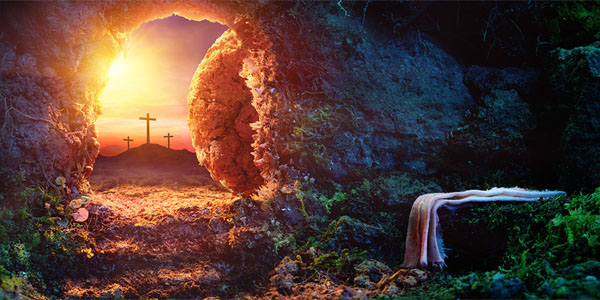Deuteronomy 16:1-12 Click here for Bible Verses

Hi GAMErs!
Today’s passage is Deuteronomy 16:1-12. Let’s go!
In Deuteronomy 16:1-12, Moses describes to the current generation of Israelites two of the three most important feasts in the Jewish calendar: Passover (also known as the Feast of Unleavened Bread) and Pentecost (also known as the Feast of Weeks).
Deuteronomy 16:1-8 (NIV)
1 Observe the month of Abib and celebrate the Passover of the LORD your God, because in the month of Abib he brought you out of Egypt by night.
2 Sacrifice as the Passover to the LORD your God an animal from your flock or herd at the place the LORD will choose as a dwelling for his Name.
3 Do not eat it with bread made with yeast, but for seven days eat unleavened bread, the bread of affliction, because you left Egypt in haste–so that all the days of your life you may remember the time of your departure from Egypt.
4 Let no yeast be found in your possession in all your land for seven days. Do not let any of the meat you sacrifice on the evening of the first day remain until morning.
5 You must not sacrifice the Passover in any town the LORD your God gives you
6 except in the place he will choose as a dwelling for his Name. There you must sacrifice the Passover in the evening, when the sun goes down, on the anniversary of your departure from Egypt.
7 Roast it and eat it at the place the LORD your God will choose. Then in the morning return to your tents.
8 For six days eat unleavened bread and on the seventh day hold an assembly to the LORD your God and do no work.
On verses 1-8: Why don’t Christians celebrate Passover today in the way Deuteronomy 16:1-8 talks about? It’s because we now have something even greater than Passover to remember and observe: Jesus Christ, His death and His resurrection — also known as Easter.
At Passover the Israelites sacrificed an animal from their flock or herd (v2) and ate unleavened bread to commemorate their escape from Egypt. It is not a coincidence that when Jesus Christ was betrayed, crucified and killed, it happened during the Passover (see Mark 14:1). Just as at Passover a lamb without defect was killed to atone for the sins of the people, Jesus is the ultimate, final and perfect Passover lamb, whose death atoned for our sins. But Jesus did more than die on the cross. This Lamb of God also rose again. Thus when we celebrate Easter, we are effectively celebrating the ultimate Passover. Instead of merely acknowledging the death of a lamb, at Easter we remember the death and celebrate the resurrection of the Lamb Jesus Christ, in whom we have forgiveness of sins and eternal life (John 1:29). Easter is the ultimate Passover!
Deuteronomy 16:9-12 (NIV)
9 Count off seven weeks from the time you begin to put the sickle to the standing grain.
10 Then celebrate the Feast of Weeks to the LORD your God by giving a freewill offering in proportion to the blessings the LORD your God has given you.
11 And rejoice before the LORD your God at the place he will choose as a dwelling for his Name–you, your sons and daughters, your menservants and maidservants, the Levites in your towns, and the aliens, the fatherless and the widows living among you.
12 Remember that you were slaves in Egypt, and follow carefully these decrees.
On verses 9-12: The Feast of Weeks, also known as Pentecost, was meant to be a celebration of the harvest, of God’s blessings on His people. It was to happen every year on the 50th day (or 7 seven weeks) after Passover – thus the word “Pentecost”, which comes from the Greek for “the 50th day”.
Why don’t we celebrate the Feast of Weeks as described in Deuteronomy 16:9-12? It’s because we now have something much greater to celebrate: the coming of the Holy Spirit. After Jesus Christ rose from the grave and ascended to heaven, on the day of Pentecost the Father sent the Holy Spirit upon all of Jesus’ followers (see Acts 2), just as Jesus promised.
It is the Holy Spirit who convicts us of sin, who leads us to faith in Jesus, who inhabits us, who guides us to understand God’s Word and God’s will, and who enables us to experience God’s presence in our lives. Thus it is appropriate that the Holy Spirit came during the Feast of Weeks at Pentecost, since Pentecost is a celebration of God’s blessings and the greatest blessing we have been given is the Holy Spirit.
Different churches celebrate Pentecost different depending on their traditions. For those churches that don’t celebrate Pentecost formally, it could be said that every time we gather together as the church and give worship to God we are celebrating this greatest blessing, the coming of His Holy Spirit. Let’s thank God every day for His Holy Spirit and ask Him to fill us and guide us.
Thank You Heavenly Father for giving us so many reasons to be thankful and to celebrate. Thank You for sending Jesus Your Son to be the fulfillment of Passover. And thank You for sending the Holy Spirit to be the fulfillment of Pentecost. Because You gave us Jesus Your Son and the Holy Spirit, we have reason to celebrate every single day. Come fill us today Holy Spirit. In Jesus’ name, AMEN!

